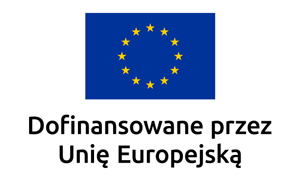WŁĄCZENIE KWALIFIKACJI
Kwalifikacja wolnorynkowa i sektorowa może zostać włączona do Zintegrowanego Systemu Kwalifikacji (ZSK)
na wniosek podmiotów, które prowadzą zorganizowaną działalność w obszarze: gospodarki,
rynku pracy, edukacji lub szkoleń.
Może być to na przykład firma handlowa planująca włączenie kwalifikacji wolnorynkowej lub organizacja skupiająca przedsiębiorców z danej branży, zrzeszenie producentów, związek sportowy czy stowarzyszenie firm szkoleniowych rozważające włączenie kwalifikacji sektorowej.
Kwalifikacja wolnorynkowa to kwalifikacja nieuregulowana odrębnymi przepisami, odpowiadająca potrzebom rynku pracy lub społecznym. Nadawana jest przez podmioty prowadzące działalność gospodarczą posiadającym nadane przez ministra właściwego uprawnienie do certyfikowania danej kwalifikacji wolnorynkowej.
Na wniosek organizacji o zasięgu ogólnokrajowym prowadzącej działalność statutową w obszarze danej branży lub danego sektora (art. 15a ustawy o ZSK) do Zintegrowanego Systemu Kwalifikacji może zostać włączona przez ministra właściwego kwalifikacja sektorowa. Wnioskodawcą może być np. organizacja pracodawców, stowarzyszenie wpisane do Krajowego Rejestru Sądowego lub sektorowa rada do spraw kompetencji.
Kwalifikacja sektorowa to kwalifikacja o charakterze zawodowym nieuregulowana odrębnymi przepisami, odpowiadająca na potrzeby danej branży lub sektora i uwzględniająca ich specyfikę. Nadawana jest przez podmioty prowadzące działalność statutową w obszarze danej branży lub sektora posiadającym nadane przez ministra właściwego uprawnienie do certyfikowania danej kwalifikacji sektorowej.

KWALIFIKACJĘ WOLNORYNKOWĄ I SEKTOROWĄ MOŻE ZGŁOSIĆ KAŻDY PODMIOT, KTÓRY UZNA, ŻE JEST ONA POTRZEBNA, I POTRAFI TO UZASADNIĆ.
Co zrobić, aby zgłosić kwalifikację?
Złóż wniosek elektroniczny za pomocą Zintegrowanego Rejestru Kwalifikacji (ZRK).
Taki wniosek powinien zawierać szczegółowy opis kwalifikacji. Opis powinien zawierać:
- efekty uczenia się, jakie powinna mieć osoba, która chce uzyskać tę kwalifikację,
- warunki, jakie powinien spełnić podmiot, który chce ją nadawać (czyli prowadzić walidację).
Zgłoszenie zawiera także uzasadnienie, dlaczego dana kwalifikacja jest potrzebna, opis zapotrzebowania na nią i typowe możliwości jej wykorzystania.

JEŚLI WNIOSEK JEST POPRAWNY – ZOSTANIE PRZEKAZANY DO MINISTRA WŁAŚCIWEGO DLA DANEJ KWALIFIKACJI.
Minister sprawdzi, czy kwalifikacja ma odpowiednią jakość i czy jest potrzebna. Jeśli uzna, że tak – włączy ją do Zintegrowanego Systemu Kwalifikacji (ZSK) i wpisze do Zintegrowanego Rejestru Kwalifikacji (ZRK).
Na decyzję ma 4 miesiące. Termin ten może wydłużyć się o kolejne 4 miesiące, ale tylko jeden raz.
OPIS KWALIFIKACJI WOLNORYNKOWEJ
Zgłaszając kwalifikację do Zintegrowanego Systemu Kwalifikacji (ZSK), załącz jej opis.
Każdy podmiot, który będzie w przyszłości chciał nadawać kwalifikację – czyli zostać instytucją certyfikującą (IC) – będzie musiał kierować się tym opisem.
Zobacz, co zawiera opis kwalifikacji:

1. Opis efektów uczenia się.
Efekty uczenia się to wiedza, umiejętności lub kompetencje społeczne, wymagane dla danej kwalifikacji.
Każdy efekt uczenia się jest krótko opisany i doprecyzowany przez kryteria weryfikacji, których może być kilka dla każdego efektu.
Kryteria weryfikacji to działania, które powinna wykonać osoba w trakcie weryfikacji, aby udowodnić, że ma wymagane efekty uczenia się. Kryteria opisują bardzo dokładnie to, co potwierdza certyfikat. Są ważne zarówno dla kandydatów, jak i dla pracodawców.
*[przykład: 2-3 efekty uczenia się z kryteriami weryfikacji – w formie tabelki/ilustracji]

2. Warunki, jakie musi spełnić podmiot, który chce zostać instytucją certyfikującą (IC).
To minimalne standardy wyznaczone podmiotom starającym się o uprawnienia IC, aby zapewnić jakość całego procesu.
Muszą być dostosowane do:
- efektów uczenia się określonych dla danej kwalifikacji,
- kryteriów weryfikacji przypisanych efektom uczenia się.
Warunki określają:
- Metody sprawdzania efektów uczenia się, które są dopuszczone dla danej kwalifikacji lub konkretnych efektów uczenia się.
- Kadrę. Najczęściej określa się wymogi dla osób, które przeprowadzają weryfikację – asesorów i członków komisji. Można też określić wymogi dla osób projektujących walidację lub dla doradcy walidacyjnego.
- Sposób prowadzenia walidacji oraz warunki organizacyjne i materialne.
Mogą to być na przykład: warunki lokalowe, wymagany sprzęt, ramy czasowe walidacji lub inne istotne kwestie związane z organizacją walidacji.
METODY WALIDACJI
Walidacja nie jest typowym egzaminem znanym ze szkoły czy uczelni.
Oprócz znanych metod sprawdzania wiedzy – korzysta też z innowacyjnych rozwiązań. Takich, które łatwo dostosować do potrzeb osób dorosłych.
Metody i techniki walidacji oraz przykłady ich zastosowania opisaliśmy w Katalogu Metod Walidacji.

3. Warunki, jakie musi spełniać osoba, która stara się o certyfikat.
Nie ma znaczenia, w jaki sposób osoba przystępująca do walidacji zdobyła wiedzę i umiejętności wymagane do uzyskania kwalifikacji. Jednak dla niektórych kwalifikacji określa się warunki wstępne – jeśli tego oczekuje rynek.
To oznacza, że od kandydata może się wymagać:
- kwalifikacji pełnej na określonym poziomie – na przykład matury, dyplomu licencjackiego, ukończenia gimnazjum,
- konkretnego uprawnienia – na przykład prawa jazdy,
- potwierdzenia dodatkowych umiejętności – na przykład udzielania pierwszej pomocy,
- ubezpieczenia,
- zaświadczenia o stanie zdrowia.

4. W opisie kwalifikacji musisz zawrzeć także inne informacje
– będą miały znaczenie na etapie podejmowania przez ministra decyzji o włączeniu kwalifikacji.
Są to:
- charakterystyka kwalifikacji,
- rynkowe zapotrzebowanie na nią,
- typowe możliwości jej wykorzystania.
PROCEDURA WŁĄCZANIA KWALIFIKACJI WOLNORYNKOWEJ
Procedurę włączania kwalifikacji prowadzi minister właściwy dla danej kwalifikacji.
Podmiot składający wniosek o włączenie kwalifikacji do ZSK, wraz ze złożeniem wniosku, wnosi opłatę w wysokości 2218 zł.
* wnioski o włączenie kwalifikacji sektorowej do ZSK złożone przez organizacje, które są organami prowadzącymi branżowe centra umiejętności lub ich partnerami, do 30 czerwca 2026 r. nie podlegają opłacie.
Rola ministra w procesie włączania kwalifikacji
1. Konsultuje się z zainteresowanymi środowiskami.

Informuje na portalu Zintegrowanego Systemu Kwalifikacji (ZSK) o rozpoczęciu konsultacji środowiskowych i przyjmuje opinie na temat kwalifikacji.
2. Pozyskuje opinie specjalistów.

Pyta specjalistów o opinię, czy rynek potrzebuje takiej kwalifikacji. Na podstawie opinii decyduje, czy rozpatrywać wniosek.
3. Ocenia wniosek.

Bierze pod uwagę:
- ocenę efektów uczenia się wymaganych dla danej kwalifikacji, a także ocenę wymagań dotyczących walidacji,
- celowość włączenia kwalifikacji wolnorynkowej do ZSK (zgodność z potrzebami społecznymi, zapotrzebowaniem na rynku pracy i oczekiwaniami pracodawców),
- dostosowanie wymagań dla danej kwalifikacji do obiektywnych okoliczności i możliwości osiągnięcia efektów uczenia się w dającym się przewidzieć czasie,
- podobieństwo danej kwalifikacji wolnorynkowej do kwalifikacji już włączonych do ZSK.
4. Przypisuje poziom Polskiej Ramy Kwalifikacji (PRK).

Powołuje zespół ekspertów, który porównuje efekty uczenia się wymagane dla danej kwalifikacji z poziomami PRK.
Zespół rekomenduje poziom PRK dla danej kwalifikacji. Rekomendacja zawiera także poprawiony – w porozumieniu z wnioskodawcą – opis wymaganych efektów uczenia się. Minister przekazuje rekomendację Radzie Interesariuszy ZSK.
Jeżeli Rada oceni ją:
- pozytywnie – minister przypisuje poziom PRK do danej kwalifikacji,
- negatywnie – zespół ekspertów sporządza nową rekomendację, w której odnosi się do opinii Rady. Ta rekomendacja jest ostateczna.
5. Przygotowuje obwieszczenie o włączeniu kwalifikacji do ZSK.

Obwieszczenie jest publikowane w Monitorze Polskim. Kwalifikacja wolnorynkowa zostaje w dniu publikacji włączona do ZSK.

MINISTER, SPECJALIŚCI I EKSPERCI MAJĄ OBOWIĄZEK ŚCISŁEJ WSPÓŁPRACY Z WNIOSKODAWCĄ NA KAŻDYM ETAPIE.
ZINTEGROWANY REJESTR KWALIFIKACJI (ZRK)
Każda kwalifikacja wolnorynkowa włączona do Zintegrowanego Systemu Kwalifikacji (ZSK) jest wpisana do Zintegrowanego Rejestru Kwalifikacji (ZRK).
ZRK to rejestr publiczny, który gromadzi informacje o kwalifikacjach nadawanych w Polsce. Są w nim:
- kwalifikacje nadawane w oświacie lub szkolnictwie wyższym,
- kwalifikacje uregulowane,
- kwalifikacje rzemieślnicze,
- kwalifikacje wolnorynkowe,
- kwalifikacje sektorowe.
Każda kwalifikacja, która jest w ZRK:
- jest potwierdzona przez władze publiczne,
- ma określony poziom PRK,
- jest objęta zasadami zapewniania jakości.
Dane gromadzone w rejestrze są publicznie dostępne na portalu ZRK.
Przykłady kwalifikacji WOLNOrynkowych włączonych do ZSK
Status kwalifikacji w Zintegrowanym Systemie Kwalifikacji (ZSK)
1
Po włączeniu kwalifikacji wolnorynkowej do ZSK ma ona status: WŁĄCZONA.
Podmiot, który chce uzyskać prawa instytucji certyfikującej, może złożyć wniosek o nadanie uprawnień do prowadzenia walidacji tej kwalifikacji.
2
Minister nadaje podmiotowi uprawnienia instytucji certyfikującej (IC) oraz powierza, w drodze umowy, wybranemu podmiotowi zewnętrznego zapewniania jakości (PZZJ) pełnienie funkcji zewnętrznego zapewniania jakości wobec danej IC.
3
Po nadaniu uprawnień instytucji certyfikującej przynajmniej jednemu podmiotowi, kwalifikacja zmienia status w ZSK – z włączonej na FUNKCJONUJĄCĄ. Od tego momentu Podmiot, który ma uprawnienia IC, może już prowadzić walidację i nadawać kwalifikację.
Minister może nadać uprawnienia kolejnym IC, które chcą nadawać tę kwalifikację.
TYPY KWALIFIKACJI
Zintegrowany System Kwalifikacji to między innymi kwalifikacje wolnorynkowe, sektorowe i rzemieślnicze
Kwalifikacje w oświacie i szkolnictwie wyższym

Są one nadawane na podstawie prawa, które reguluje działanie oświaty i szkolnictwa wyższego (edukacji formalnej) – a więc w szkołach i na uczelniach wyższych.
Wszystkie tego rodzaju kwalifikacje są włączone do ZSK.
To zarówno kwalifikacje pełne, jak i cząstkowe.
Kwalifikacje uregulowane

Nadawane na podstawie innych przepisów prawa – poza szkołą czy uczelnią. Są one ważnym uzupełnieniem kwalifikacji pełnych. Pojawiają się, gdy potrzebuje ich rynek.
Przykładami takich kwalifikacji są: prawo jazdy, dyplom nurka, patent żeglarza jachtowego, specjalizacje lekarskie i tym podobne.
To wyłącznie kwalifikacje cząstkowe.
Kwalifikacje wolnorynkowe

Nadawane bez podstawy w przepisach powszechnie obowiązującego prawa.
To wyłącznie kwalifikacje cząstkowe.
Kwalifikacje wolnorynkowe mogą dotyczyć działalności:
- o charakterze ściśle zawodowym,
- społecznej, w tym działalności wychowawczej i opiekuńczej,
- rekreacyjnej.
Kwalifikacje sektorowe

Nadawane przez przez podmioty prowadzące działalność statutową w obszarze danej branży lub sektora.
To wyłącznie kwalifikacje cząstkowe.
Kwalifikacje sektorowe to kwalifikacje o charakterze zawodowym odpowiadające na potrzeby danej branży lub sektora i uwzględniające ich specyfikę.
Kwalifikacje rzemieślnicze

To kwalifikacje cząstkowe potwierdzone dyplomami mistrza i świadectwami czeladniczymi wydawanymi po zdaniu egzaminów przed komisjami egzaminacyjnymi izb rzemieślniczych.
Kwalifikacje pełne
Są nadawane wyłącznie w szkołach i na uczelniach, po ukończeniu określonych etapów kształcenia. To na przykład świadectwo maturalne, licencjat, dyplom magisterski.
- Nie każde świadectwo jest kwalifikacją pełną. Nie jest nią na przykład świadectwo ukończenia liceum. W tym przypadku kwalifikacją pełną jest świadectwo maturalne, bo to ono potwierdza zakończenie etapu kształcenia średniego.
- Kwalifikacjami pełnymi nie są też na przykład świadectwa, które potwierdzają kwalifikację w zawodzie czy świadectwa ukończenia studiów podyplomowych.
Kwalifikacje cząstkowe
To wszystkie pozostałe kwalifikacje. Mogą być nadawane zarówno w szkołach, na uczelniach (na przykład świadectwo potwierdzające kwalifikacje w zawodzie), jak i poza nimi (na przykład prawo jazdy).
Zakres wymaganych efektów uczenia się jest węższy niż w przypadku kwalifikacji pełnych. Jest on zazwyczaj związany z konkretną działalnością czy branżą.
Kwalifikacje cząstkowe mogą być m.in.:
- wymagane do wykonywania zawodu – na przykład prawo jazdy odpowiedniej kategorii w przypadku kierowcy autobusu,
- uzupełnieniem kwalifikacji pełnej – na przykład lekarze uzyskują specjalizacje, które pozwalają im obsługiwać specjalistyczną aparaturę medyczną.
POLSKA RAMA KWALIFIKACJI
Każda kwalifikacja wolnorynkowa włączana do Zintegrowanego Systemu Kwalifikacji (ZSK) ma przypisywany poziom PRK – już na etapie włączania kwalifikacji do systemu. Kwalifikacje niewłączone do ZSK nie mogą mieć przypisanego poziomu PRK.
Poziom PRK do kwalifikacji uregulowanej i wolnorynkowej przypisuje minister właściwy dla danej kwalifikacji. Robi to na podstawie rekomendacji zespołu ekspertów, który powołał, aby porównać efekty uczenia wymagane dla kwalifikacji z charakterystykami poziomów PRK. Rekomendacja zespołu ekspertów jest dla ministra wiążąca.
Zespoły ekspertów porównują efekty uczenia się z charakterystykami poziomów PRK. Eksperci pracują zgodnie z określoną procedurą. Muszą odnieść kluczowe efekty uczenia się do najbardziej odpowiadających im zapisów w charakterystykach poziomów PRK.
Wszystkie certyfikaty wydawane w ramach ZSK mają jeden wspólny element wizualny. Jest nim oznaczenie Polskiej Ramy Kwalifikacji (PRK)


OBOK POLSKIEJ RAMY KWALIFIKACJI (PRK) MOGĄ POWSTAWAĆ SEKTOROWE RAMY KWALIFIKACJI (SRK), KTÓRE SĄ BRANŻOWYM ROZWINIĘCIEM CHARAKTERYSTYK TYPOWYCH DLA KWALIFIKACJI O CHARAKTERZE ZAWODOWYM.
POZIOM PRK (POLSKIEJ RAMY KWALIFIKACJI) – zakres i stopień złożoności wymaganych efektów uczenia się dla kwalifikacji danego poziomu, sformułowanych za pomocą ogólnych charakterystyk efektów uczenia się.
(art. 2, pkt 17)


